Edra shines bright with a unique approach to furniture making
From its HQ in Tuscany, Italian furniture brand Edra leads the way in design through cutting-edge craftsmanship and illuminated collaborations
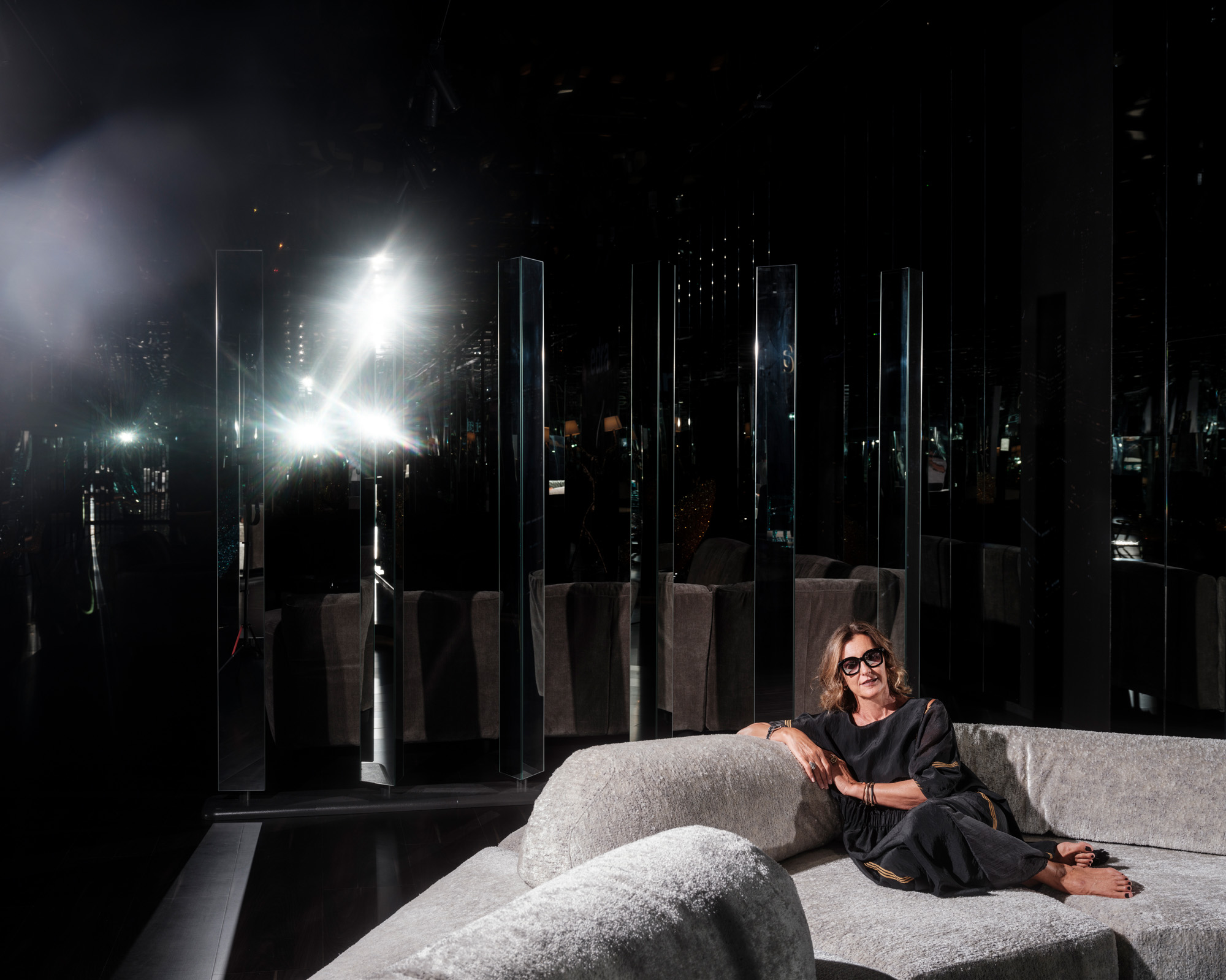
In the panorama of Italy’s leading furniture brand, Edra is a fascinating anomaly: the company is based in Tuscany, far from the madding crowd of Brianza. Its Milanese showroom is not a street-facing window into its products, but is set within the spectacular Palazzo Durini, which, until its opening in March 2021, had never been accessible to the public. And although it follows the traditional design calendar and shows at Salone del Mobile, its presentations eschew a traditional domestic scenario, favouring instead scenographic displays showing its furniture in a unique mix of technology, craftsmanship and creativity.
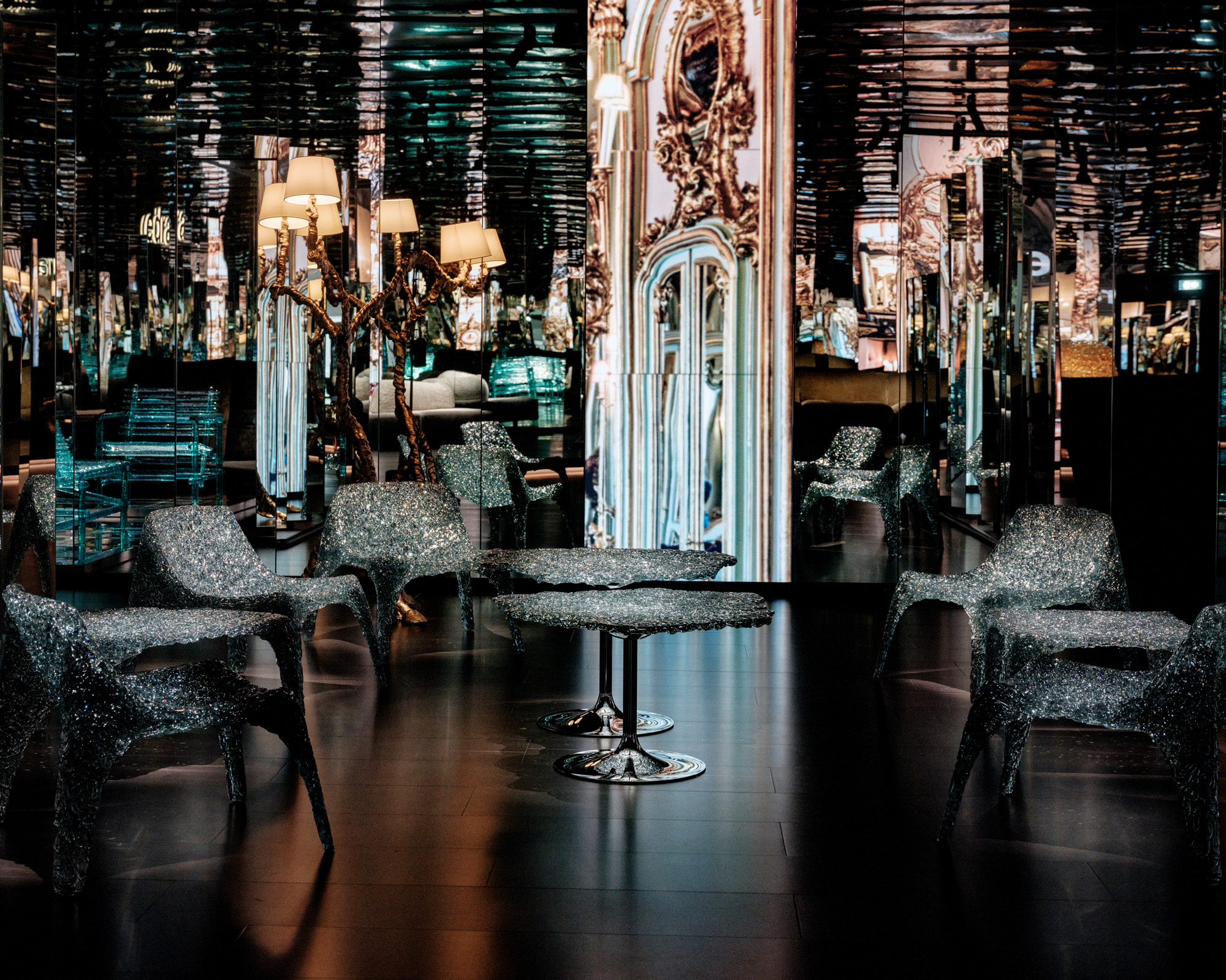
The showroom of the Edra headquarters in Perignano
The company’s story began in the late 1980s as siblings Monica and Valerio Mazzei started Edra (a name that references the Greek and Roman exedra, a room with benches for meeting and conversation) to help their family’s furniture business develop upholstery materials for their soft furnishings. Over the years, its unique approach and visionary attitude have led Edra to produce several iconic designs in collaboration with some of today’s most inventive designers (which it calls authors).
The brand’s creative history has been shaped from its inception by Massimo Morozzi, formerly a member of Archizoom and the company’s art director between 1987 and 2014. Its portfolio includes the ‘Vermelha’ chair by Estúdio Campana, flower-shaped armchairs by Masanori Umeda and early furniture by Zaha Hadid. Edra’s output is decisively about quality not quantity. It works with a limited rosterof authors, with whom it establishes a quasi-familial relationship – a tight bond driven by a shared desire to innovate at every level
Shaped by Renaissance: Edra's approach to furniture design
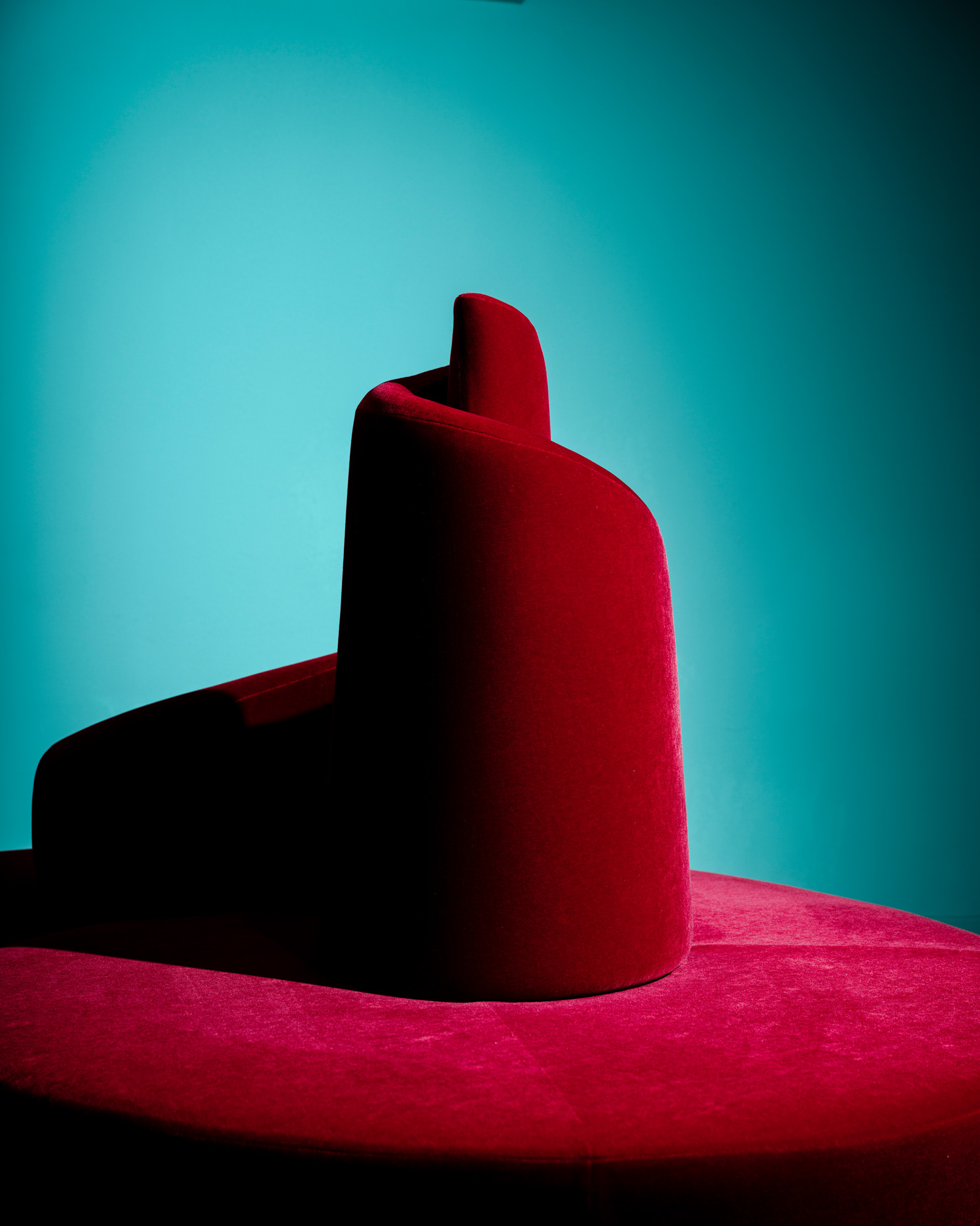
A ‘modern totem’ that takes centre stage in both private and public spaces, the ‘Tatlin’ sofa, designed in 1989 by Mario Cananzi and Roberto Semprini forEdra, is inspired by the design for never-built structure Tatlin’s Tower
Its approach is that of a Renaissance workshop. ‘For us, Renaissance is not just an epoch, it’s a model that shapes our lives,’ says Monica Mazzei. ‘We feel the pull of the workshop, of the manual know-how. Each one of our products must combine functionality with technological innovation, a new form, a good aesthetic.’
In its current era, Edra has developed significant relationships with Jacopo Foggini, who is known for his unique polycarbonate creations, and artist and furniture designer Francesco Binfaré, whose imaginative approach to the sofa is inextricably linked to the modern history of Edra. ‘Francesco’s brilliance was clear to us from the very beginning; it’s the story of a mutual understanding, but also of enchantment, because he truly is a wonder,’ says Mazzei.
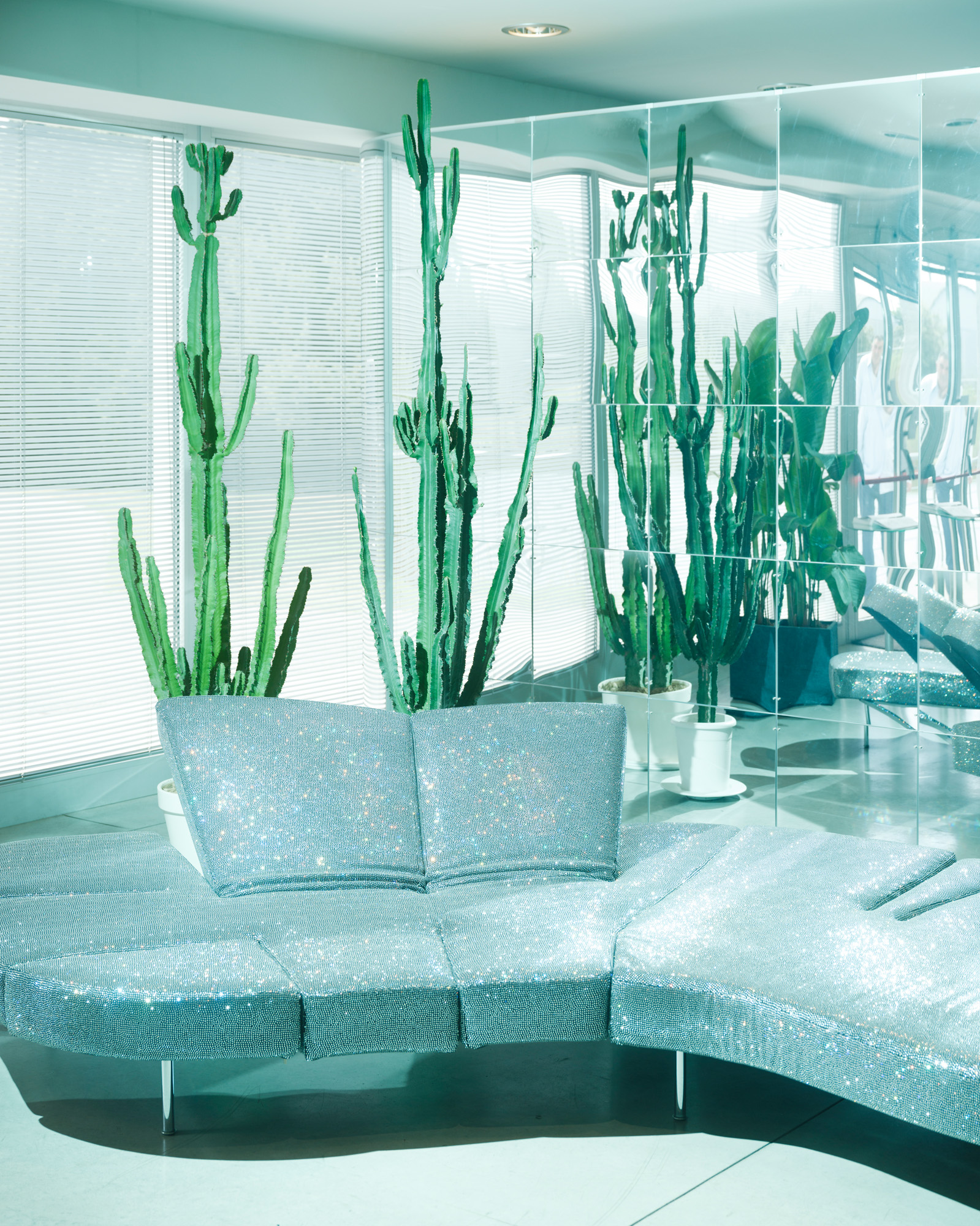
'Flap' diamond sofa, studded with 750,000 Swarovski crystals, designed by Francesco Binfaré
Among his most memorable creations is the 2000 ‘Flap’ sofa, with nine parts that can each recline at six different angles, a concept that originated from a piece of paper with small cuts. ‘It was initially designed for an exhibition, but as soon as we saw the piece of paper, everyone in the workshop was already at work to understand how to reproduce the mechanism.’
In 2004, Edra presented ‘On the Rocks’, a sofa by Binfaré that set the agenda for the following two decades. The design marked the debut of Gellyfoam polyurethane, a material derived from a gelatin used by the medical field, which Edra invented and patented. After several years of development, the material was shaped by Binfaré into a sculpture that can be assembled according to the user’s needs. ‘It wasa new idea for the sofa – a maximum expression of functionality, comfort and also freedom,’ says Mazzei. ‘Gellyfoam is particularly welcoming, it does not reject you, the more you sit on it, the more comfortable you are,’ she continues.
Receive our daily digest of inspiration, escapism and design stories from around the world direct to your inbox.
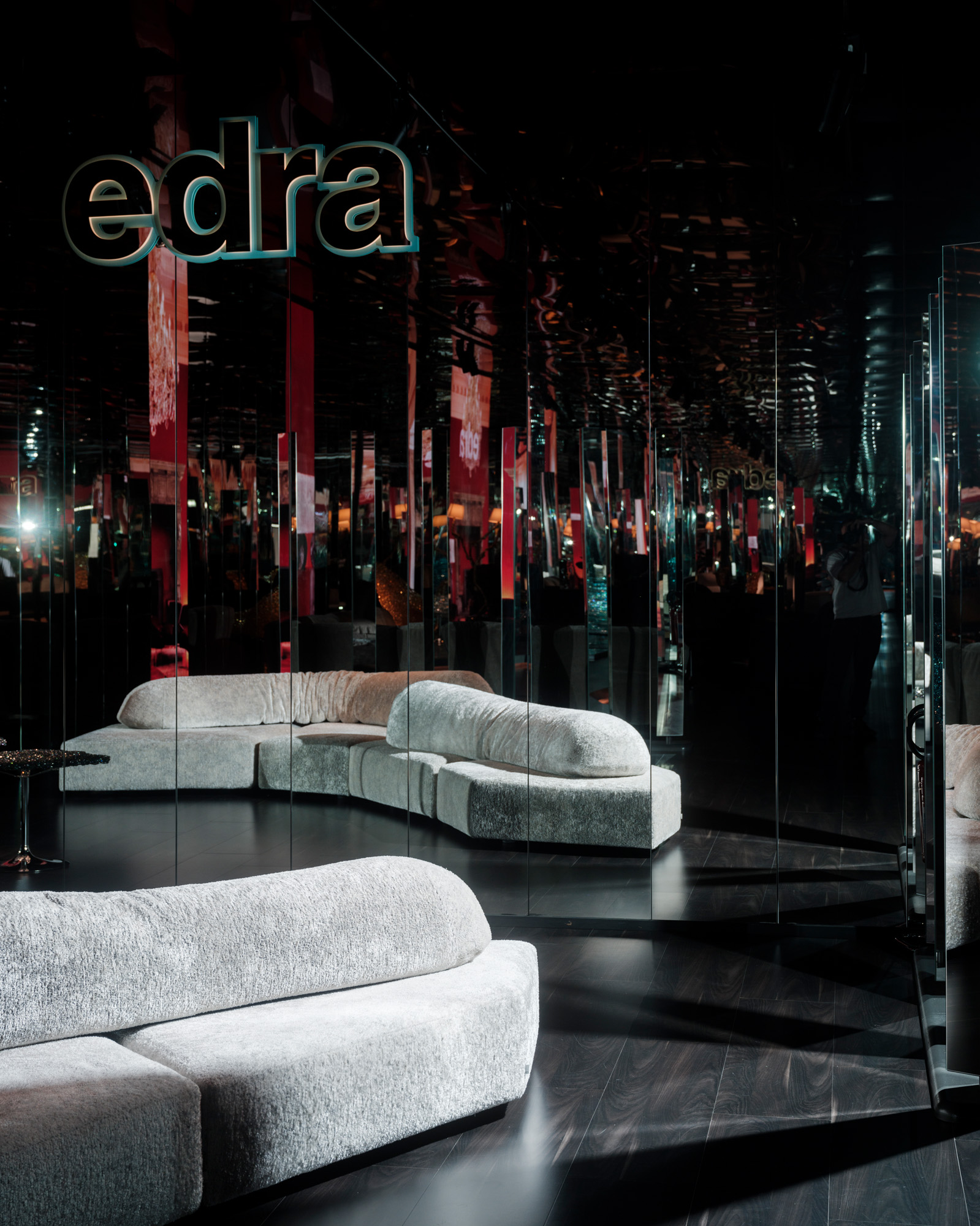
‘On the Rocks’ by Francesco Binfaré
‘Behind our projects there must always be an intelligent idea that becomes part of our way of inventing, of innovating, of doing research,’ explains Mazzei. Binfaré’s work fits perfectly within this frame. All of his pieces start with a story, and some carry this narrative into their final result, like in the case of the ‘Pack’ sofa. Shaped like an iceberg on which rests a polar bear, ‘Pack’ is equally a visual divertissement, an urgent message about climate change and a functional piece of furniture.
Edra brought the idea to life with materials that mimic an iceberg’s surface and a bear’s fur in a way that expresses Binfaré’s poetry with technical precision. ‘Pack was born from a metaphorical vision of current events,’ says the author. ‘The difficulties of the planet are represented by the polar ice and the bear, who is not aware of the gravity of the situation.’
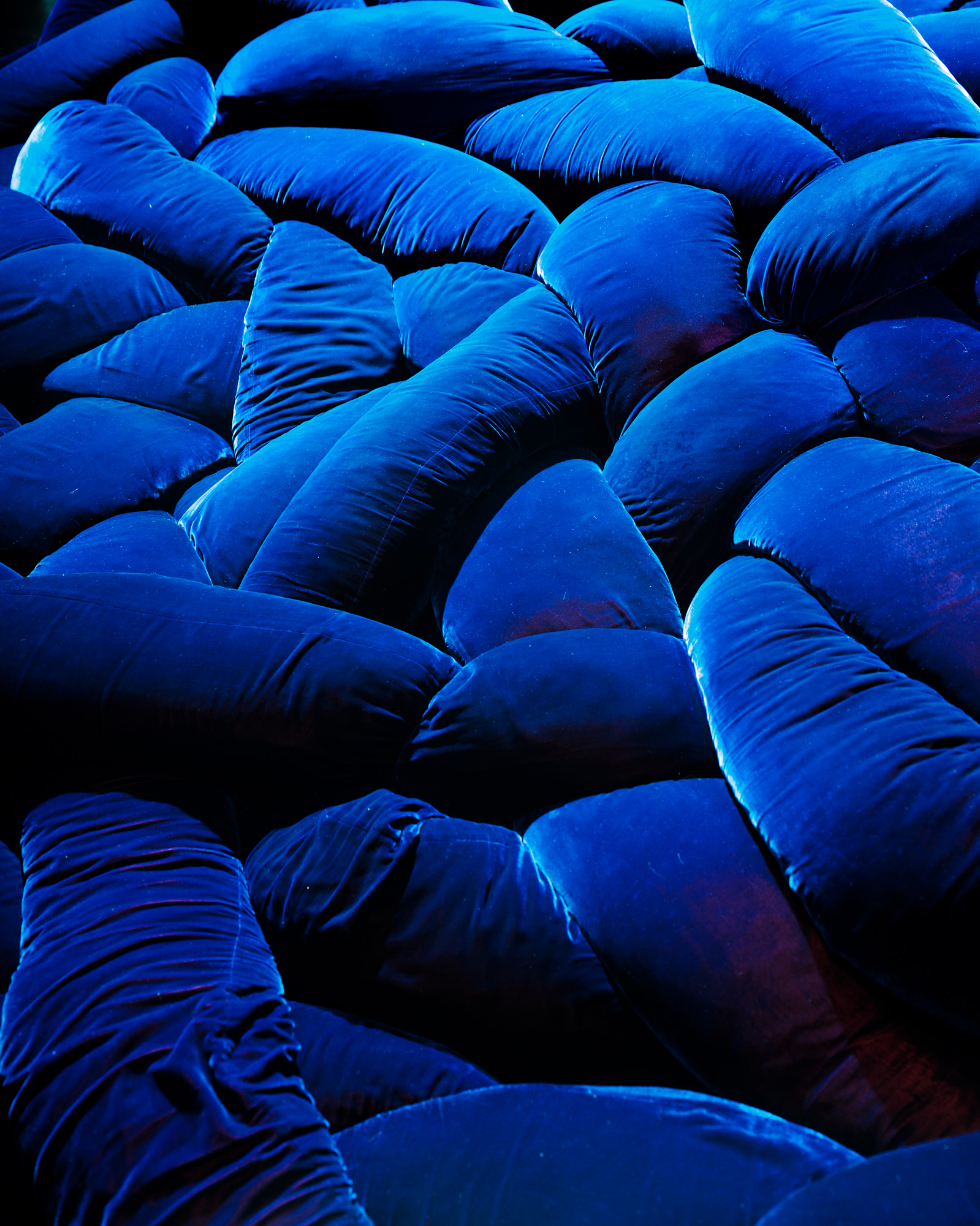
Estúdio Campana’s ‘Boa’ sofa, which consists of 120m of velvet tubes
There is a serious technical study behind each Edra product, from the way the upholstery textiles are developed so that the light hitting them doesn’t create a glare, to important collaborations with engineers on materials and even local shipyards on special parts. ‘We like to grow as a company, but we want to do it by respecting our initial principles,’ continues Mazzei.
‘The craftsmanship that creates a thing that is beautiful and well done, and that needs time and dedication, needs people who know the value of what they are doing.’ She talks about the manufacturing team, led by artisan Leonardo Volpi (who has been with the company since the late 1980s and has helped engineer every piece by Edra). ‘Authors would come to us with an idea, and he would help make the impossible possible,’ says Mazzei.
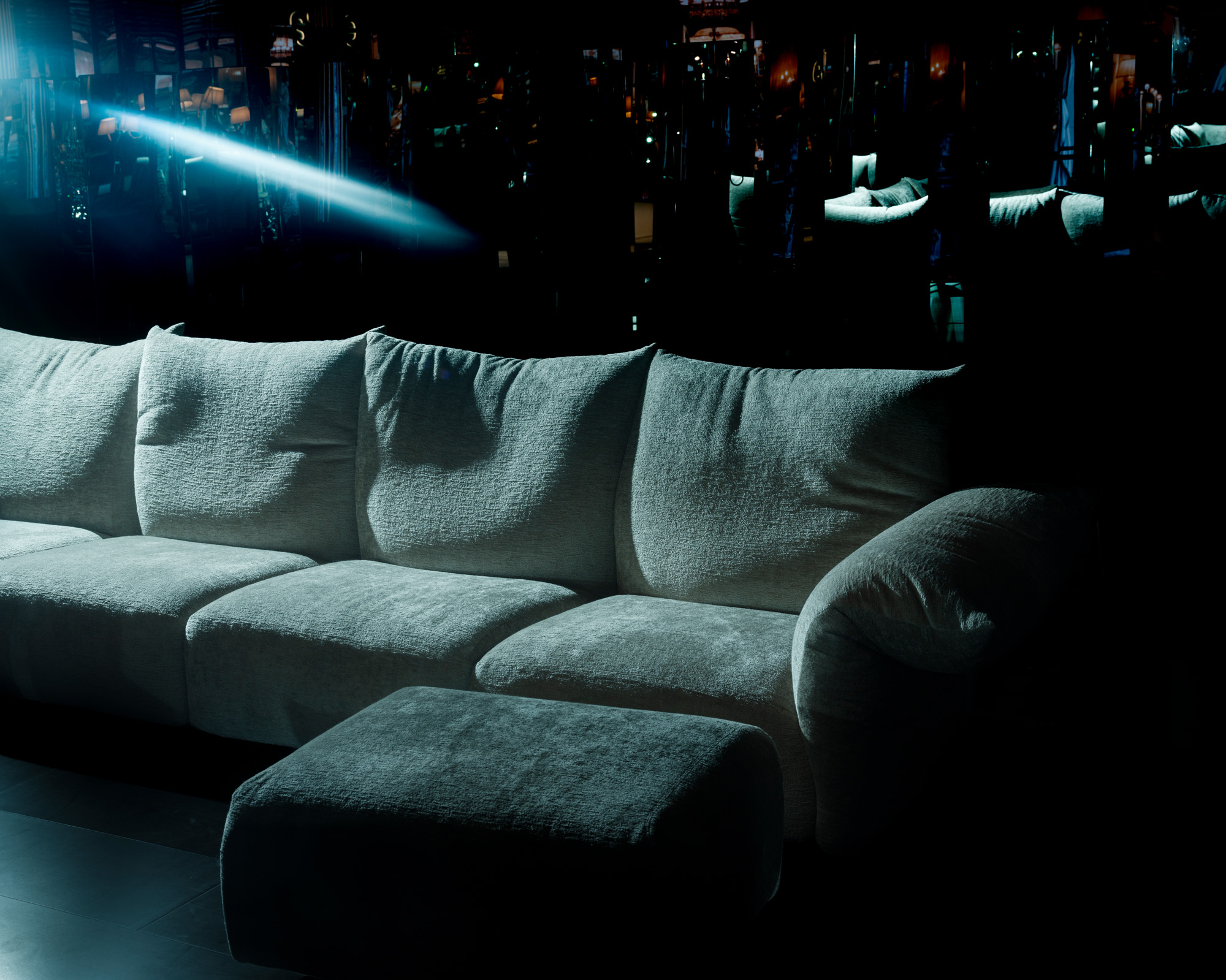
'Standard' sofa by Francesco Binfaré
Among Edra’s recent successful collections is the ever-expanding ‘Standard’ sofa, another Binfaré masterpiece. It features the company’s Smart Cushion, the result of years of research and development. An effortless gesture allows the cushion to change its shape, thanks to a mechanism hidden inside. ‘I created the ‘Standard’ as a generous sofa, and it has deserved all my attention and creative work,’ says Binfaré.
It is another example of Edra’s motto, ‘the greatest comfort, elegance and performance’, a statement that acts as a manifesto of the constant push for excellence in every aspect of their products. ‘Every day, there are so many things that still put us to the test, and we always find new ways to develop things creatively,’ says Mazzei.
This sentiment is echoed by Binfaré, whose artistic vision for his future projects at Edra promises to stretch the company’s abilities to new territories. ‘Our projects are always an adventure,’ he says. ‘The sofa is for me an expressive synthesis of great communicative effectiveness. Like a poem, it has the ability to render the fullness of a story in a small space.’
The October 2023 issue of Wallpaper* is available in print, on the Wallpaper* app on Apple iOS, and to subscribers of Apple News +. Subscribe to Wallpaper* today
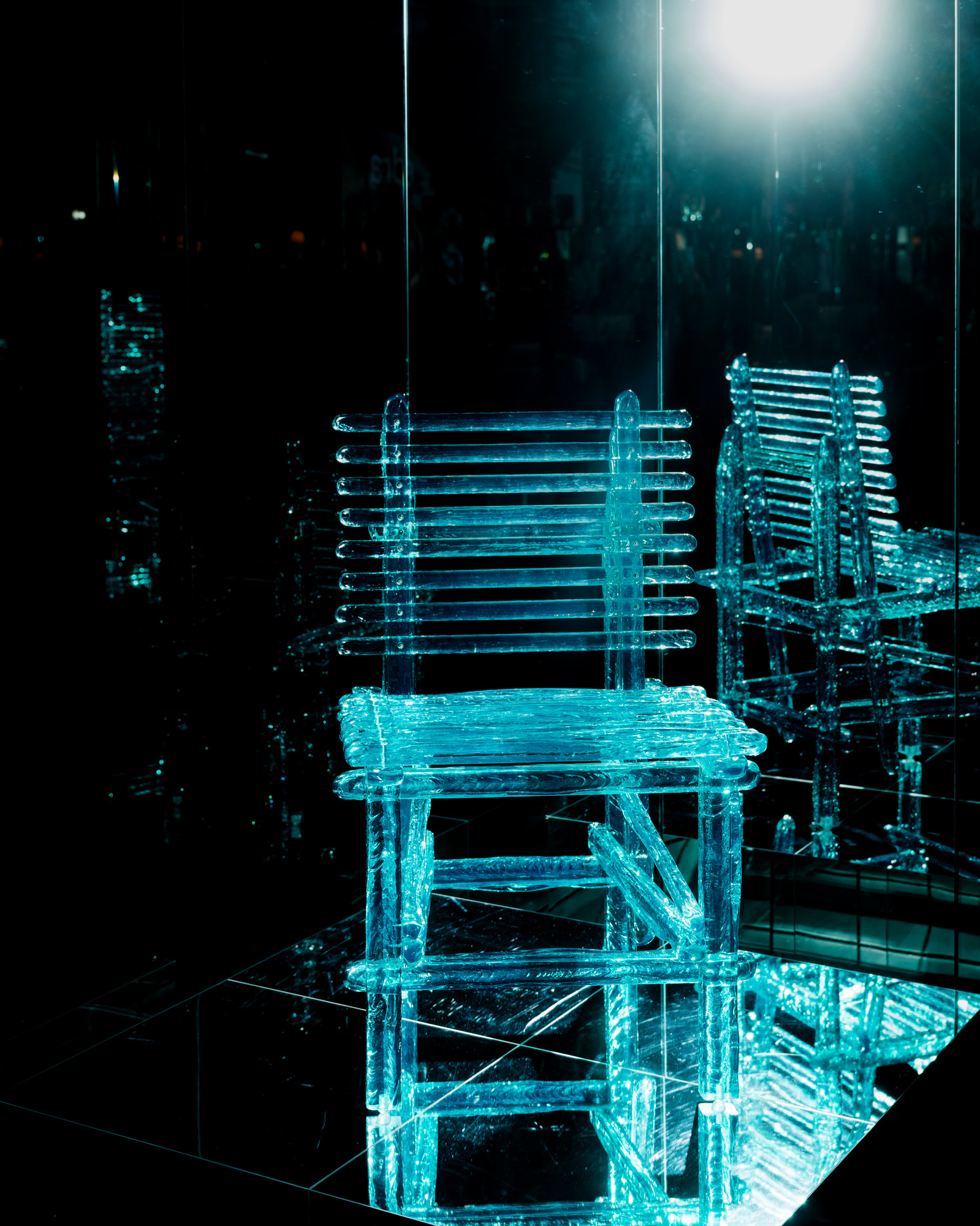
Jacopo Foggini’s ‘A’mare’ outdoor collection won a 2023 Wallpaper* Design Award
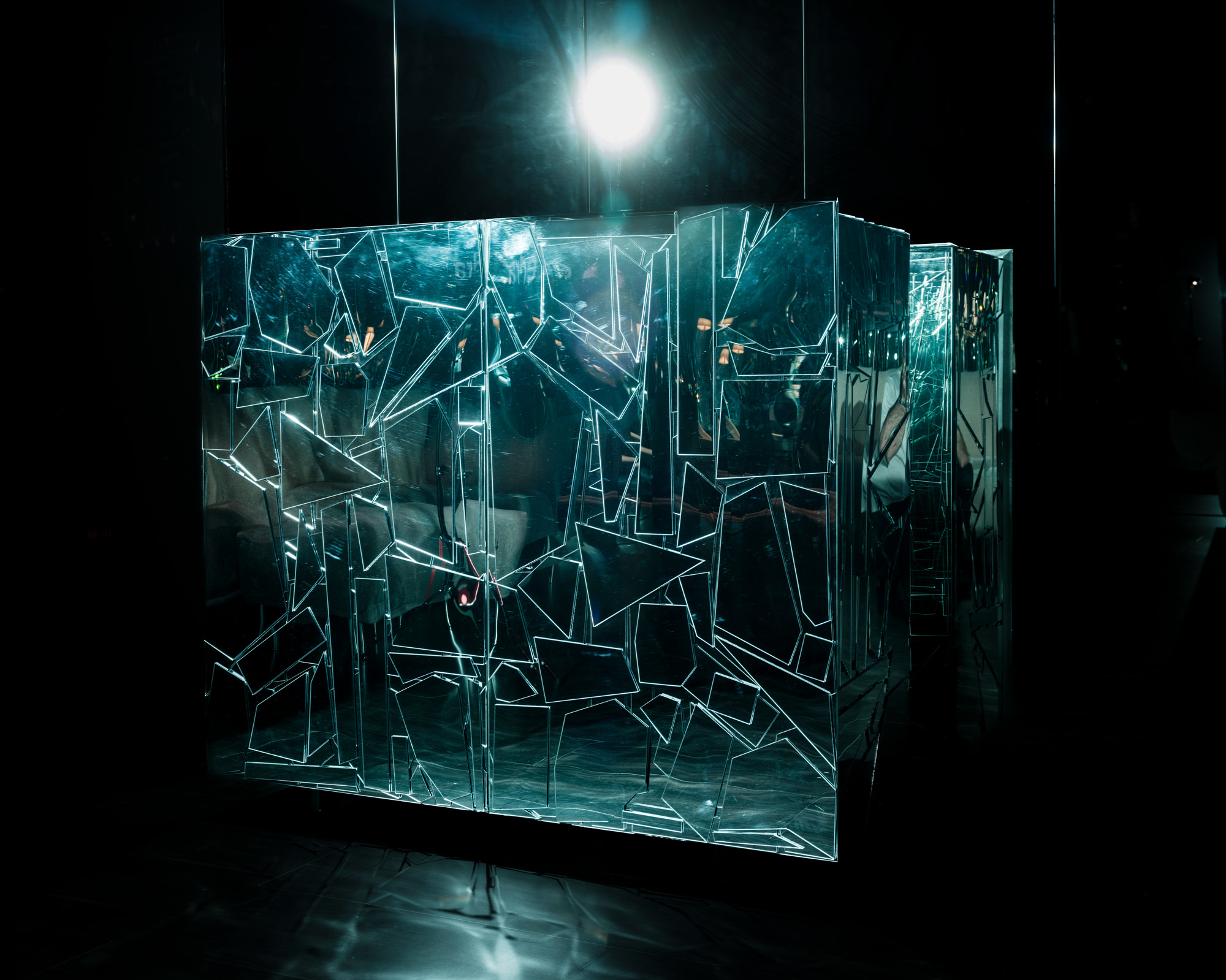
'Scrigno' cabinet by Fernando and Humberto Campana
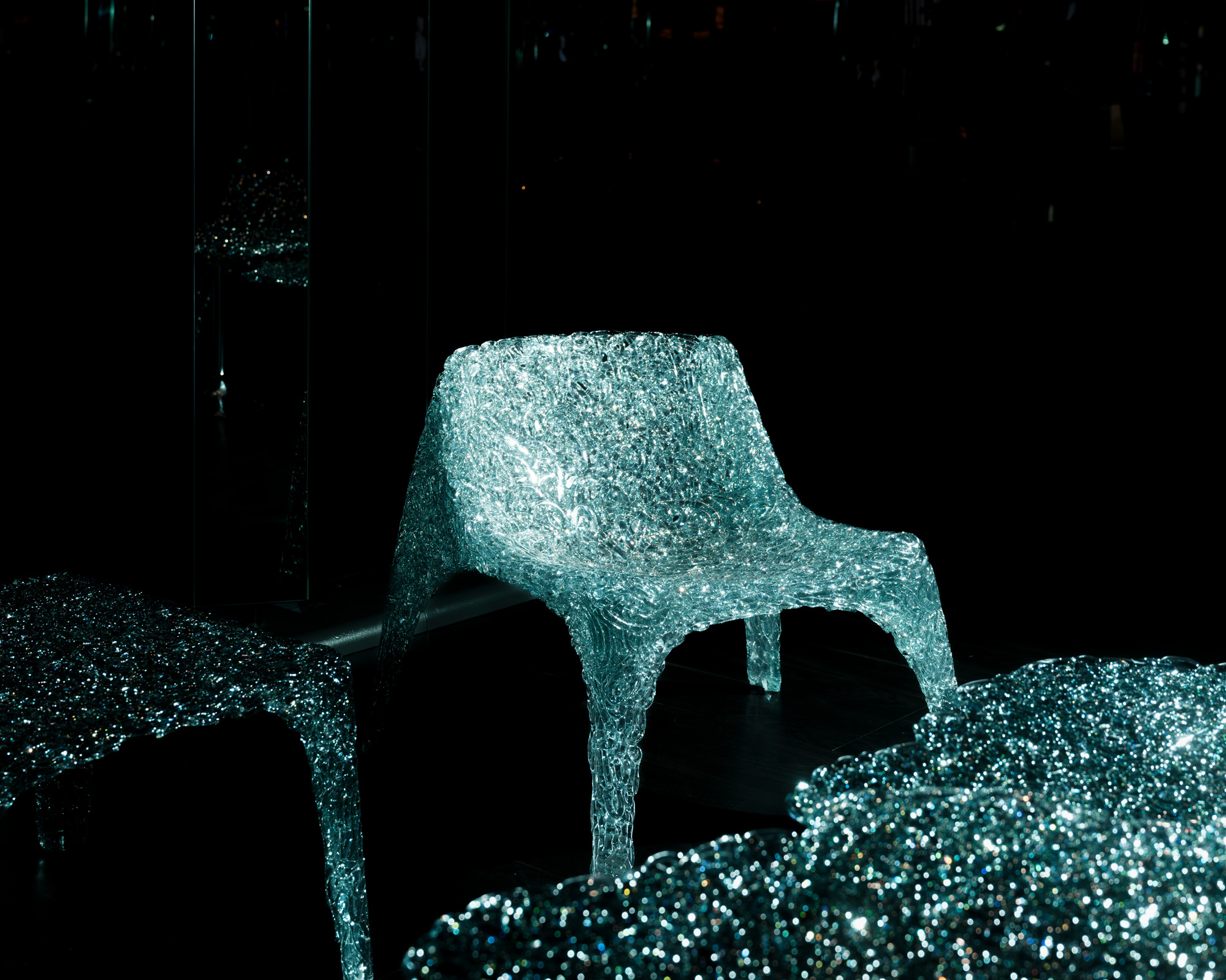
Rosa Bertoli was born in Udine, Italy, and now lives in London. Since 2014, she has been the Design Editor of Wallpaper*, where she oversees design content for the print and online editions, as well as special editorial projects. Through her role at Wallpaper*, she has written extensively about all areas of design. Rosa has been speaker and moderator for various design talks and conferences including London Craft Week, Maison & Objet, The Italian Cultural Institute (London), Clippings, Zaha Hadid Design, Kartell and Frieze Art Fair. Rosa has been on judging panels for the Chart Architecture Award, the Dutch Design Awards and the DesignGuild Marks. She has written for numerous English and Italian language publications, and worked as a content and communication consultant for fashion and design brands.
-
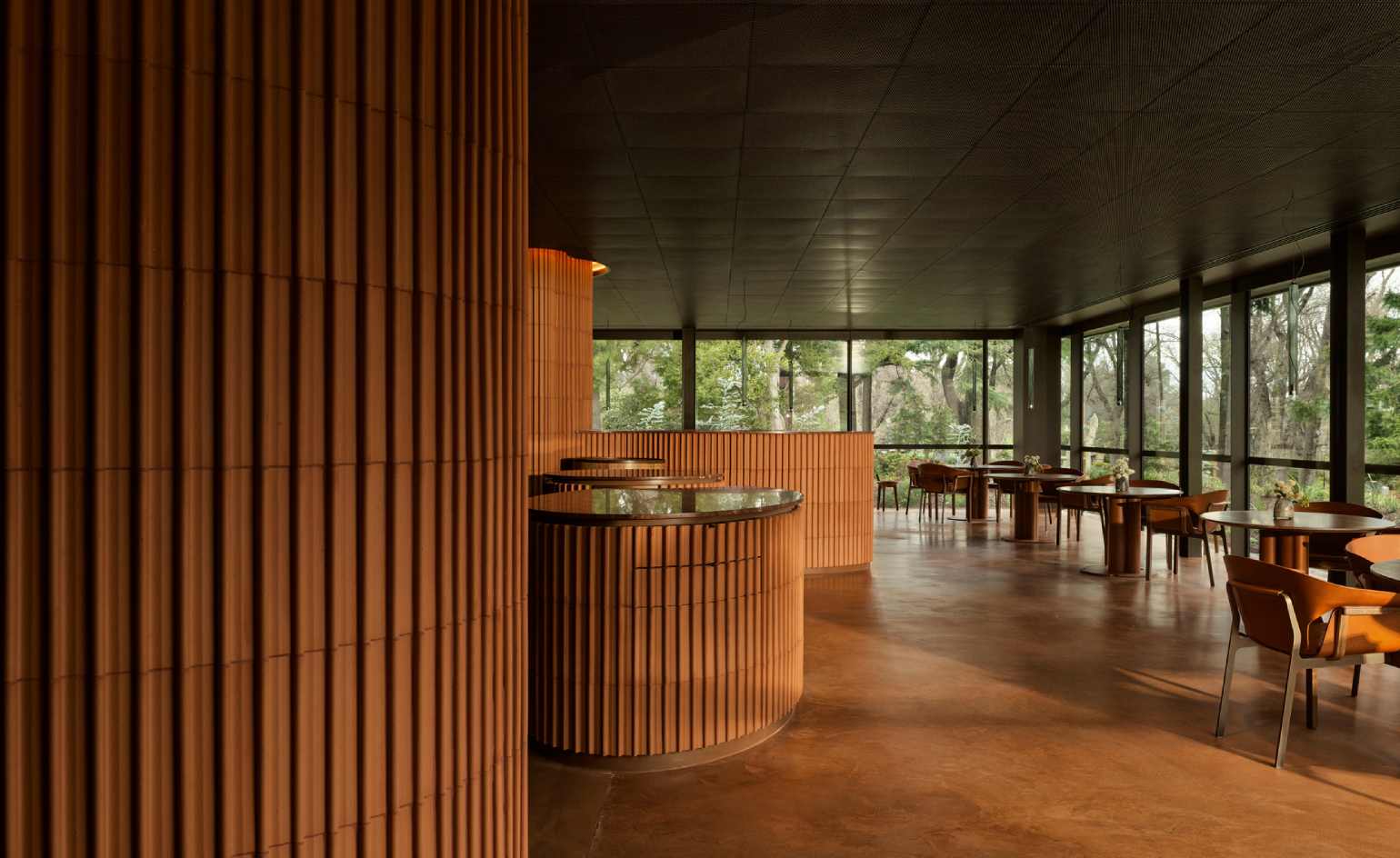 Discover a hidden culinary gem in Melbourne
Discover a hidden culinary gem in MelbourneTucked away in a central Melbourne park, wunderkind chef Hugh Allen’s first solo restaurant, Yiaga, takes diners on a journey of discovery
-
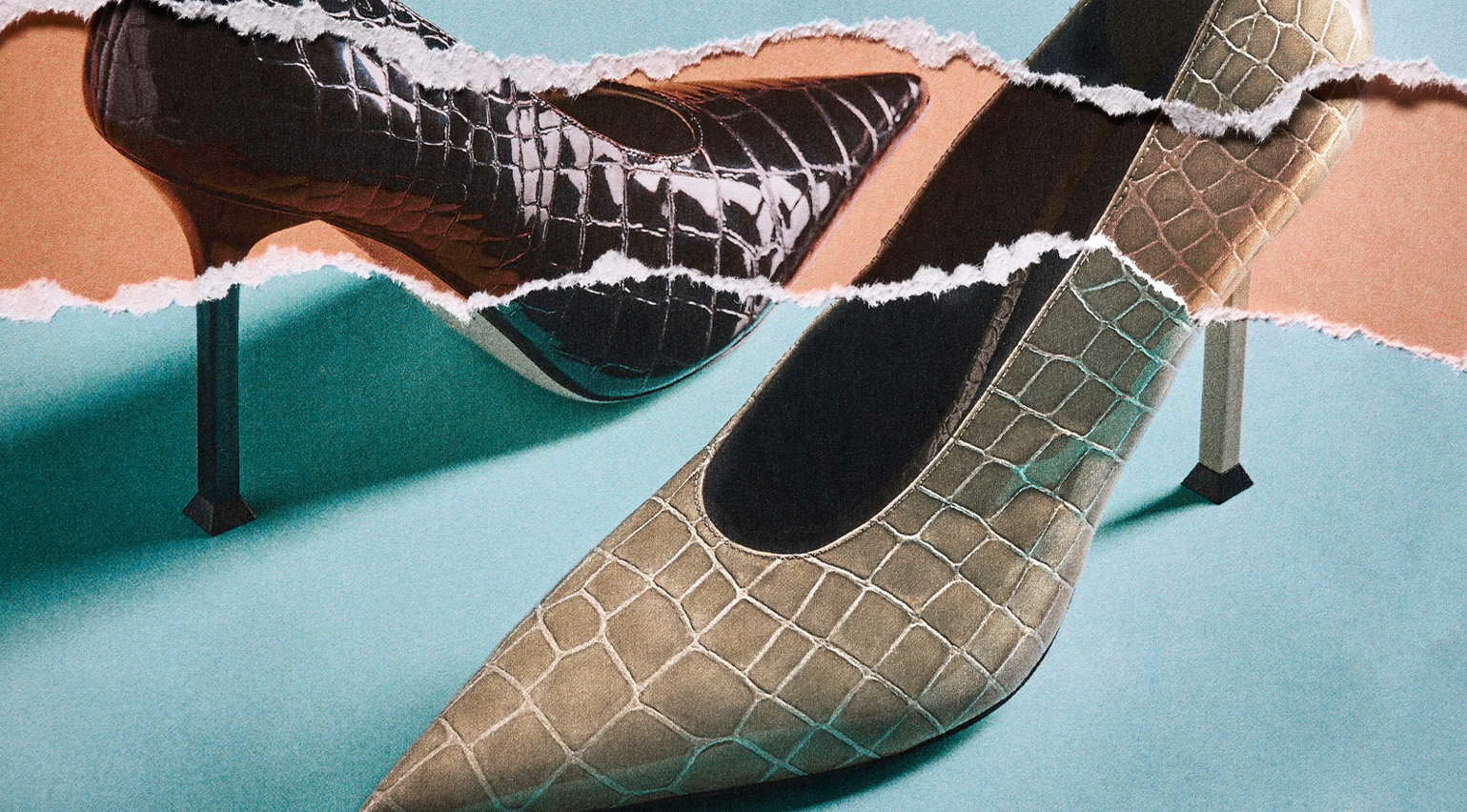 Nina Christen is the designer behind fashion’s favourite – and most playful – shoes
Nina Christen is the designer behind fashion’s favourite – and most playful – shoesShe’s created viral shoes for Loewe and Dior. Now, the Swiss designer is striking out with her own label, Christen
-
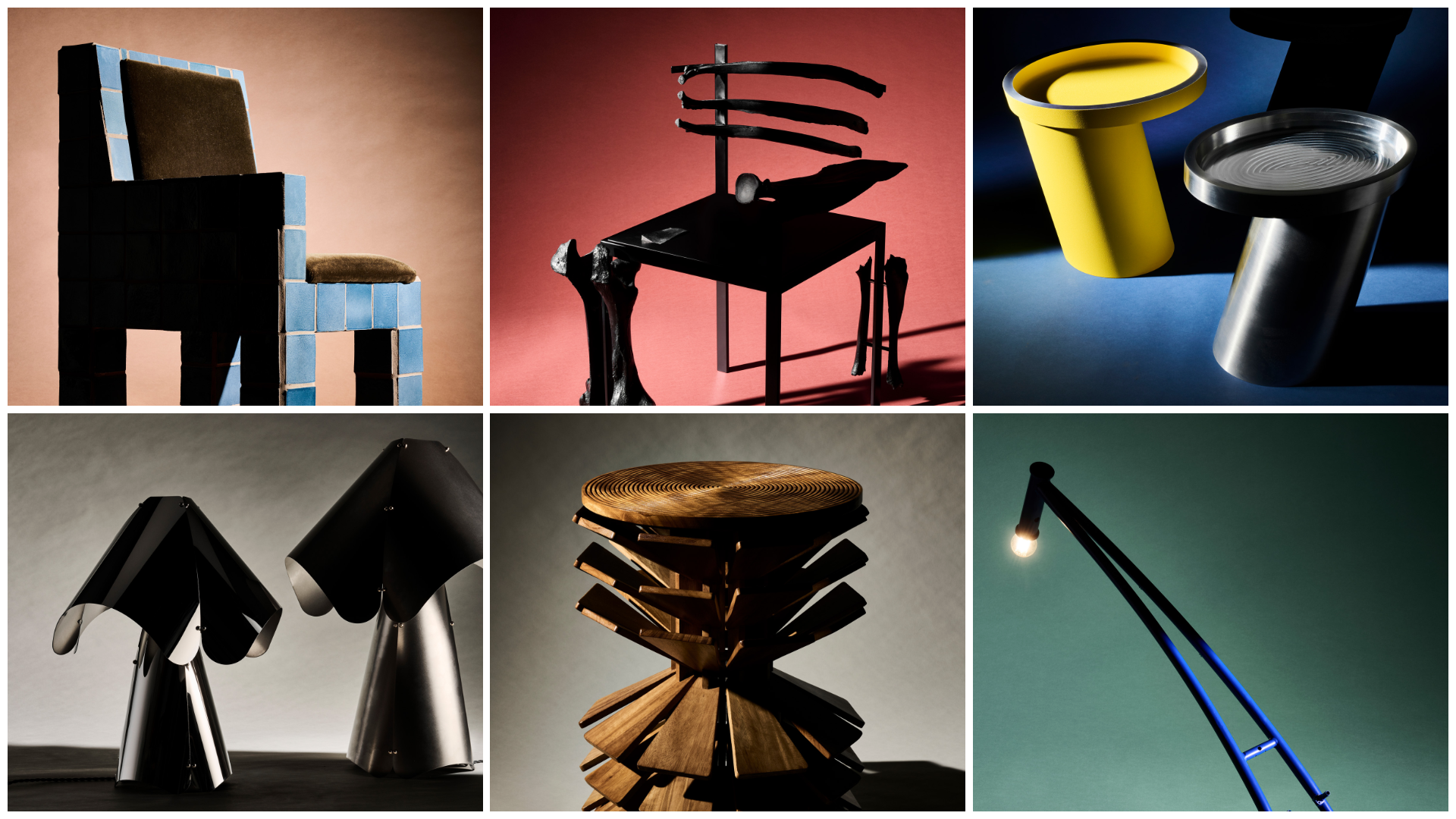 These are the 12 emerging designers we are excited to follow into 2026
These are the 12 emerging designers we are excited to follow into 2026These are the designers to watch for 2026: from unpredictable glassmakers to furniture designers working with bones, textile artists exploring ancient techniques and makers giving new life to mundane tools